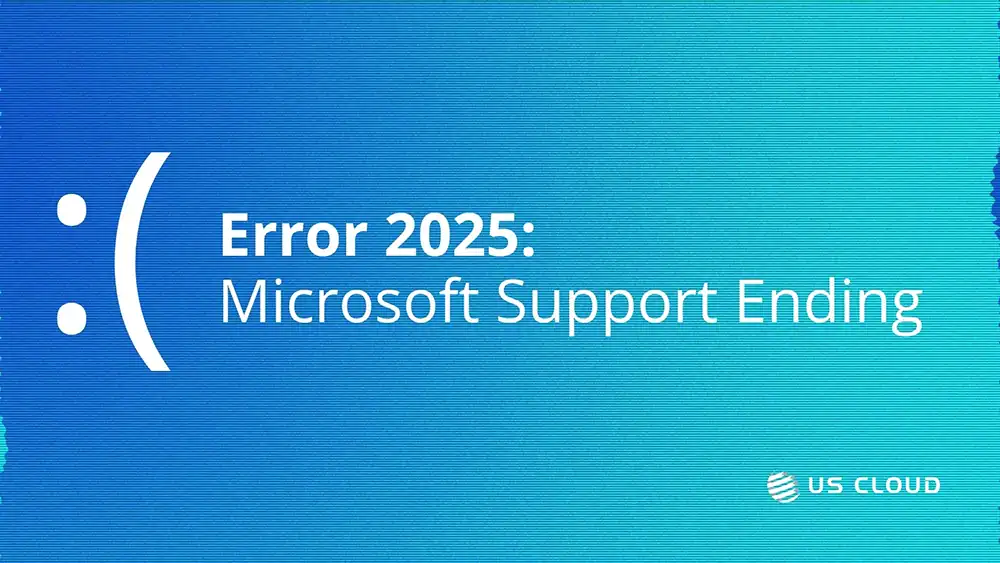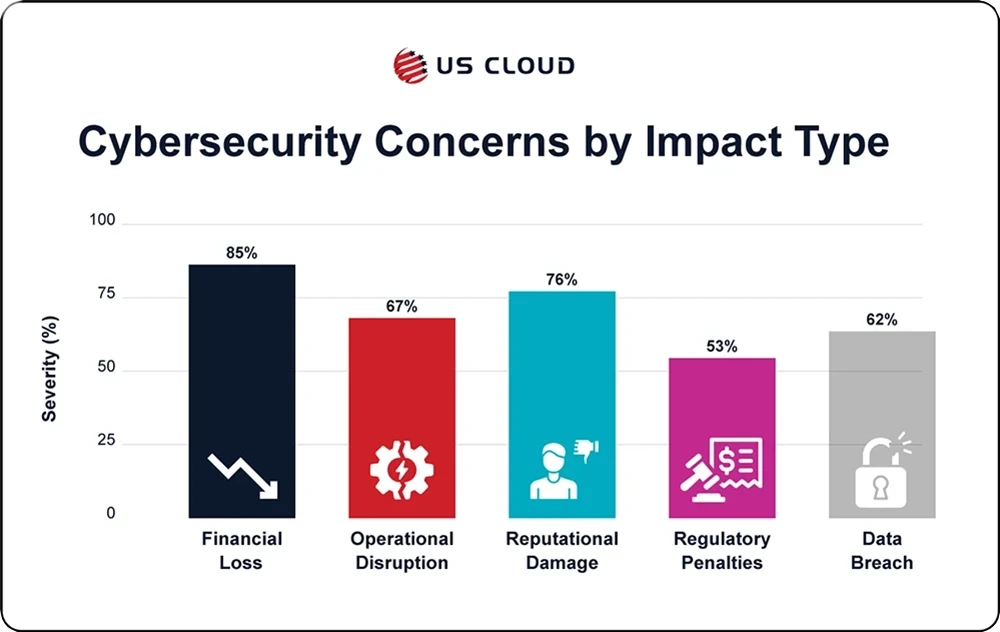
The Top 6 Cybersecurity Questions Every Board Should Ask the CISO.

Cybersecurity is not just an IT issue—it’s a critical business risk. Boards (especially ones at organizations that harbor sensitive data) must actively engage in cybersecurity governance and oversight to protect the organization from financial, operational, and reputational harm. This can help guarantee that the company’s cybersecurity strategy is robust, risk management practices are effective, and regulatory compliance is met.

The first point of contact in discovering where things stand: your company’s Chief Information Security Officer (CISO).
Microsoft’s security ecosystem, along with third-party Microsoft support providers like US Cloud, plays a crucial role in strengthening an organization’s security posture. Engaging with a CISO through targeted questions allows boards to assess risk exposure and security readiness effectively. Below are six essential cybersecurity questions every board should ask.
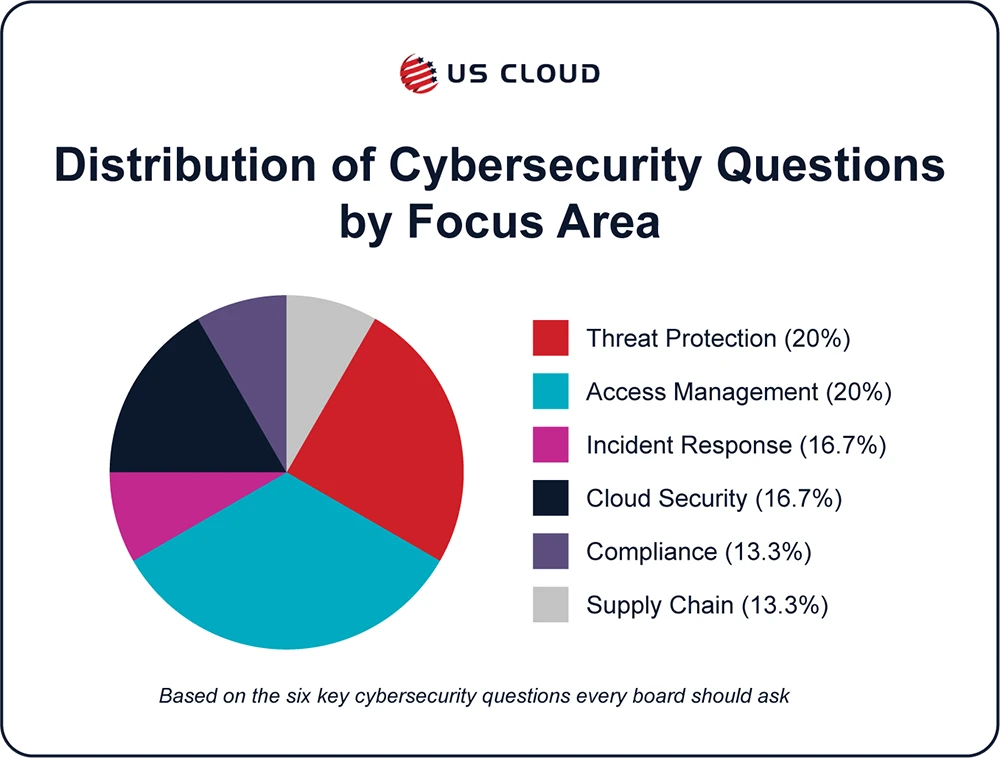
Cyberattacks can cause operational disruptions, financial loss, and reputational damage. Understanding the organization’s defense mechanisms is key to mitigating risks.
Question #1: How Is Our Organization Protected Against the Latest Cyber Threats?
Key Considerations for the Board:
- Are we leveraging Microsoft’s security solutions, such as Microsoft Defender and Sentinel, for proactive threat detection?
- How do we stay ahead of emerging cyber threats?
- What sources of threat intelligence do we use?
- How do third-party Microsoft support options enhance our cybersecurity strategy?
While investigating this question, your board of directors should home in on strategic cybersecurity investments that are aligned with the latest threat landscape. Doing so can effectively reduce risk exposure.
Question #2: How Are We Managing Access to Critical Systems and Data?
Unauthorized system access can lead to data breaches, financial fraud, and regulatory penalties. Strong access control mechanisms are crucial.
Key Considerations for the Board:
- Are we using Microsoft Entra ID (previously known as Azure AD) for identity and access management?
- How are Zero Trust principles implemented to verify user and device authenticity?
- What additional security measures do we enforce for third-party integrations?
Inquiring into systems for managing access helps leadership prioritize identity and access management (IAM) to prevent insider threats and external breaches.
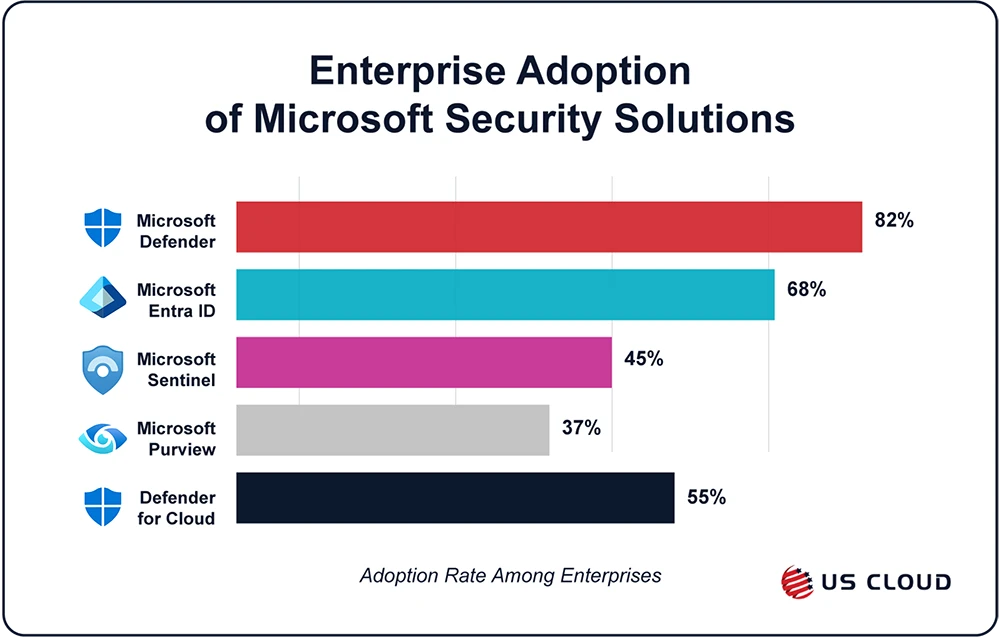
Question #3: How Prepared Are We to Detect and Respond to a Security Incident?

A swift and well-executed response minimizes operational downtime, financial impact, and reputational harm. Asking your CISO about this ahead of time may start the conversations you need to help your team construct a plan well in advance of a security incident (if you don’t have one already).
Key Considerations for the Board:
- What is our security operations strategy?
- How do we utilize Microsoft Sentinel for Security Information and Event Management (SIEM)?
- How quickly can we detect a breach?
- What are our containment and remediation processes?
- How do third-party Microsoft security partners support our incident response efforts?
Confirm that your company has a proactive and effective incident response plan to reduce business disruption in the event of a cyberattack. There is no absolute guarantee against cyberattacks, after all. When it does happen, assembling this plan will help develop a more agile response.
Question #4: How Secure Is Our Microsoft Cloud Environment?
Cloud vulnerabilities can expose sensitive corporate and customer data, making cloud security a top priority. Board members should confirm with their CISO that necessary cloud environments are both optimized and safe.
Key Considerations for the Board:
- What Microsoft-native security features are we using (e.g., Microsoft Defender for Cloud)?
- How do we ensure compliance with security best practices for Azure workloads?
- What role do third-party Microsoft service providers play in securing our cloud infrastructure?
Use this time to collaborate with your CISO to implement strong security controls that protect critical data and cloud workloads.
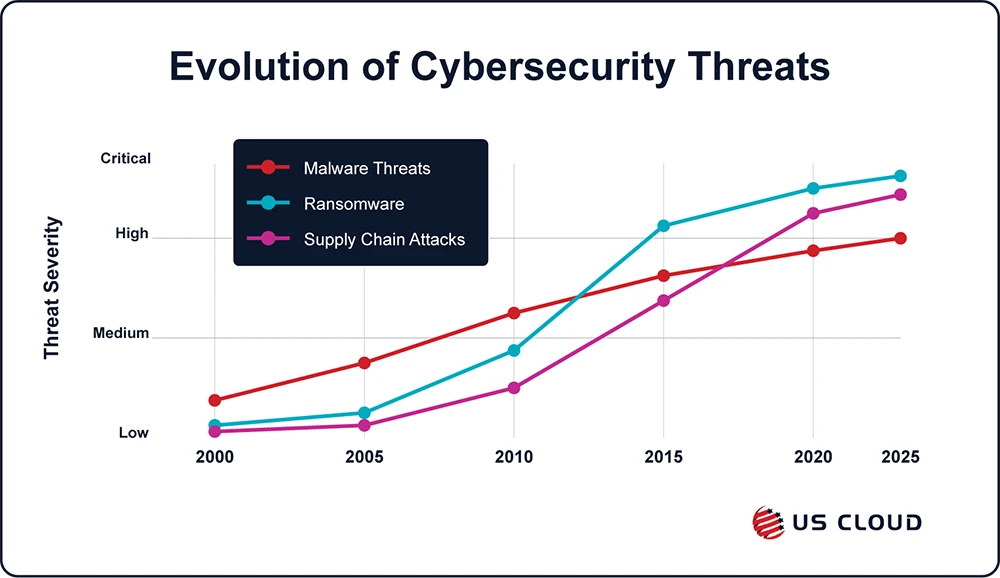
Question #5: Are We Compliant with Industry Regulations and Cybersecurity Standards?
Every industry has different security and compliance regulations. Regulatory non-compliance can result in fines, legal actions, and reputational damage. Your CISO might be relying on security-supportive options through the Microsoft ecosystem.
Key Considerations for the Board:
- How do we use Microsoft Purview for data compliance and governance?
- Are we aligned with industry-specific regulations (e.g., GDPR, HIPAA, ISO 27001)?
- How do third-party Microsoft compliance tools or partners help us meet regulatory requirements?
Asking this question helps boards verify the organization meets legal obligations and avoids costly penalties by adhering to relevant cybersecurity and data privacy regulations.
Question #6: How Are We Managing Cybersecurity Risks in Our Supply Chain and Third-Party Vendors?
A weak link in the supply chain can expose the entire organization to cyber threats. Ask your CISO if your company is protected throughout the process of manufacturing and distribution.
Key Considerations for the Board:
- How do we vet and monitor third-party vendors accessing our Microsoft environment?
- Are we using Microsoft tools (e.g., Defender for Endpoint) to enforce security policies across vendors?
- What role do Microsoft-certified security partners play in strengthening our vendor security?
Prevent supply chain breaches: check with your CISO about how Microsoft systems are being maximized to be certain that third-party risks are actively managed and mitigated.
Strengthening Cybersecurity Oversight with US Cloud

Cybersecurity governance is a board-level responsibility that goes beyond IT—it impacts business continuity, financial stability, and reputation. Boards must take an active role in cybersecurity discussions, ensuring their organizations leverage Microsoft’s security ecosystem effectively.
Third-party Microsoft partners like US Cloud enhance security resilience by providing additional expertise, monitoring, and compliance support. US Cloud can collaborate with your CISO to help your organization align security strategies with business priorities, ensuring a well-defended enterprise in an evolving threat landscape. Contact our team today to get started!
FAQ: Board Cybersecurity Questions for CISOs
Why should the board be involved in cybersecurity discussions?
Cybersecurity is a critical business risk that affects financial performance, operational continuity, and regulatory compliance. Board involvement ensures accountability and informed decision-making when it comes to matters of company-wide cybersecurity.
How do Microsoft’s security tools help organizations defend against cyber threats?
Microsoft provides a comprehensive security ecosystem, including Microsoft Defender, Sentinel, and Purview, to detect, prevent, and respond to cyber threats effectively.
What is Zero Trust, and why is it important?
Zero Trust is a security framework that assumes no user—inside or outside the network—is automatically trusted. It enhances security by continuously verifying users and devices before granting access.
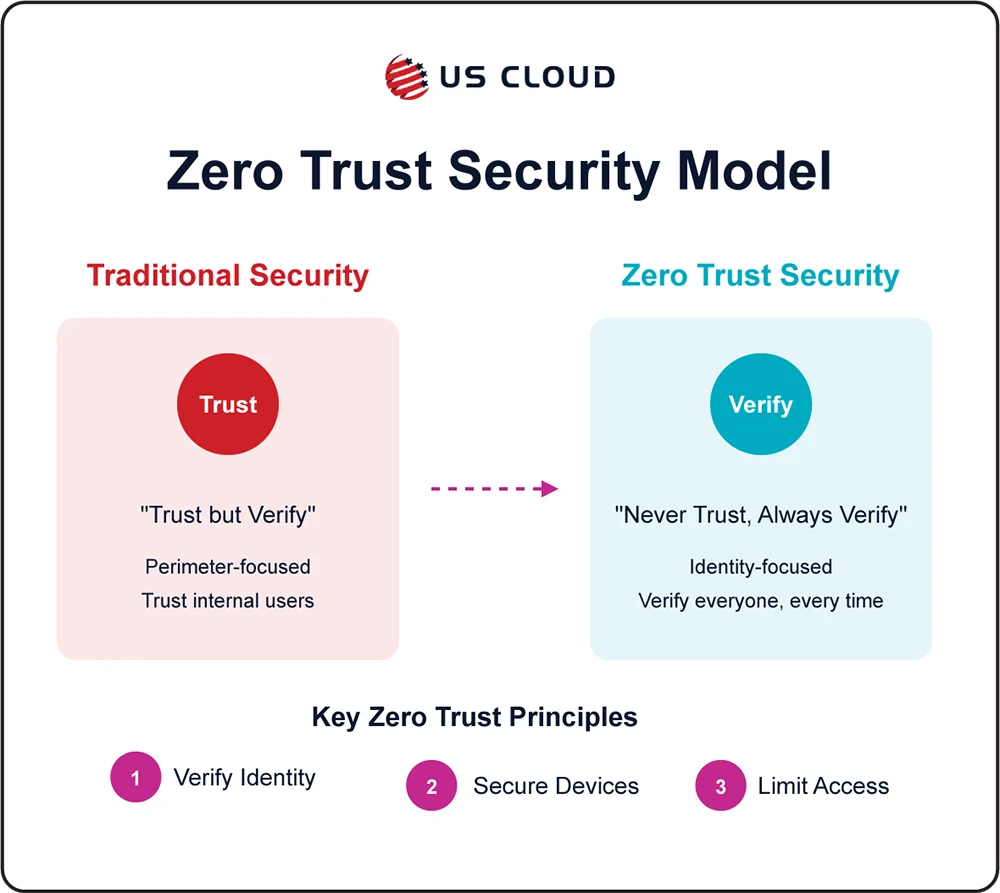
How does a third-party Microsoft support provider like US Cloud improve cybersecurity?
US Cloud offers specialized security expertise, continuous monitoring, and compliance assistance to help organizations strengthen their security posture beyond Microsoft’s built-in protections.
What steps can boards take to improve their organization’s cybersecurity strategy?
Boards should regularly review cybersecurity policies, ensure proper investment in security tools, engage with the CISO, and leverage third-party security partners to bolster defenses.
By proactively addressing cybersecurity risks, boards can protect their organizations from evolving threats and regulatory challenges while ensuring long-term business resilience.


